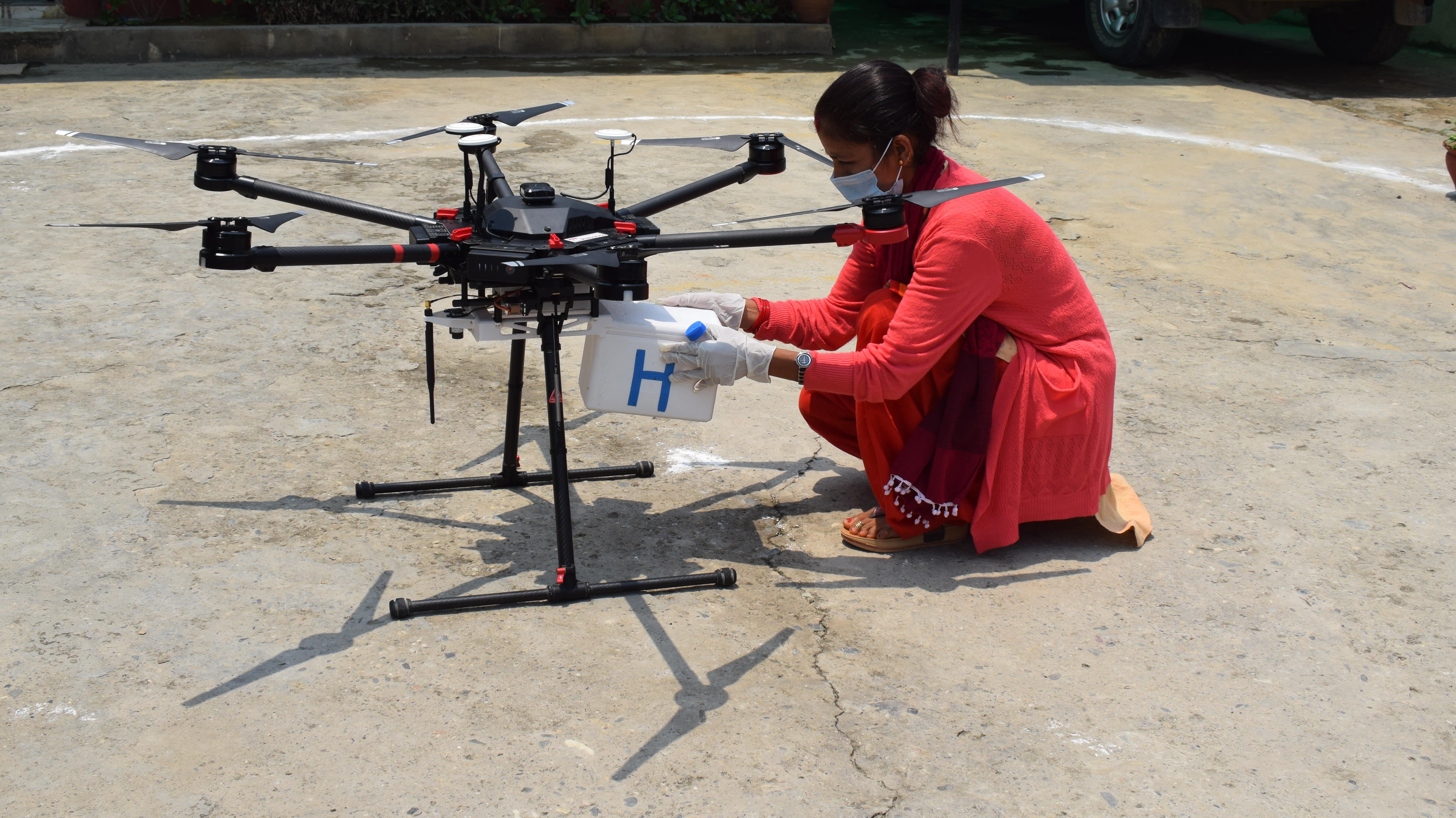
LSTM and partners are launching a new project trialling the use of drones to combat tuberculosis in some of Nepal’s most rural and inaccessible areas.
Dr Maxine Caws, a Senior Lecturer at LSTM, is the principal investigator of IMPACT TB with the Brital Nepal Medical Trust. Drones Nepal, The National TB Programme and Stony Brook University are partnering with IMPACT TB to use the unmanned aerial vehicles to transfer sputum samples from villages to medical centres for rapid diagnostic testing. She said: “With TB it is important to get the best diagnostic testing, to ensure early and correct treatment. The hills and mountains of rural Nepal while spectacularly beautiful, lack good road infrastructure. Drones can zip across high valleys and will bypass the need for healthcare workers to walk many hours through mountainous terrain, winding goat tracks and lowland planes to transport samples to laboratories for testing. This network in Pyuthan district will ensure that rural populations can access the best diagnostic tests and help us to intensify the response to TB in Nepal.”
TB is a global public health challenge, affecting some of the world’s poorest and most vulnerable communities. It is the worlds biggest infectious disease killer and there are more than 40,000 new cases in Nepal every year, with more than 18 people dying from the disease every day.
To alleviate the problem, the BNMT Nepal and the team have been working with the Government of Nepal, the National Tuberculosis Programme and the network of Female Community Health volunteers to screen communities and find TB cases. However, a huge amount of time is spent transporting samples for testing, something that the use of drones could greatly reduce.
The trial will take place in Pyuthan district, linking remote health posts by ‘on demand’ drone flights to two laboratories with the advanced molecular diagnostic TB test, GeneXpert. Dr Caws continued: Community volunteers will identify potential patients, requesting the drone to take samples for testing. This network will make the job of volunteers easier and patients in remote areas to access better and more convenient care. If the trial is successful we will establish a scale-up model across other districts to help Nepal reach the goals of the END TB strategy and ‘leave no-one behind’.”